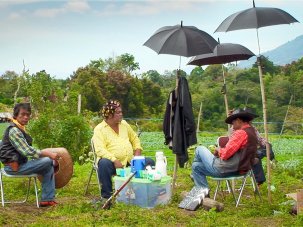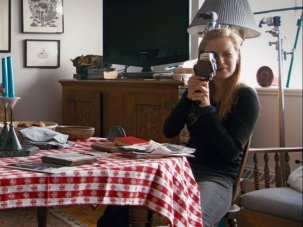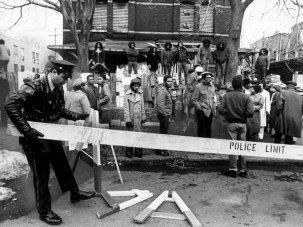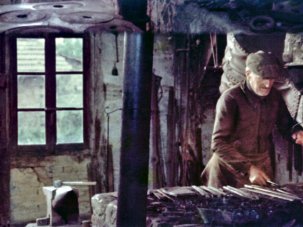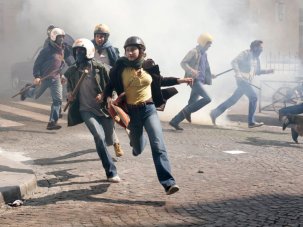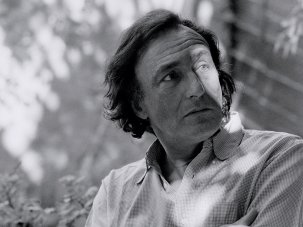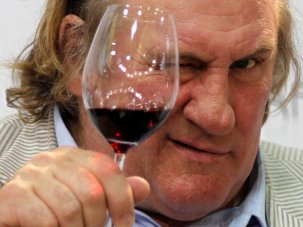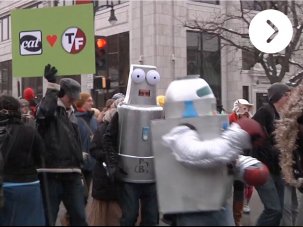from our February 2014 issue
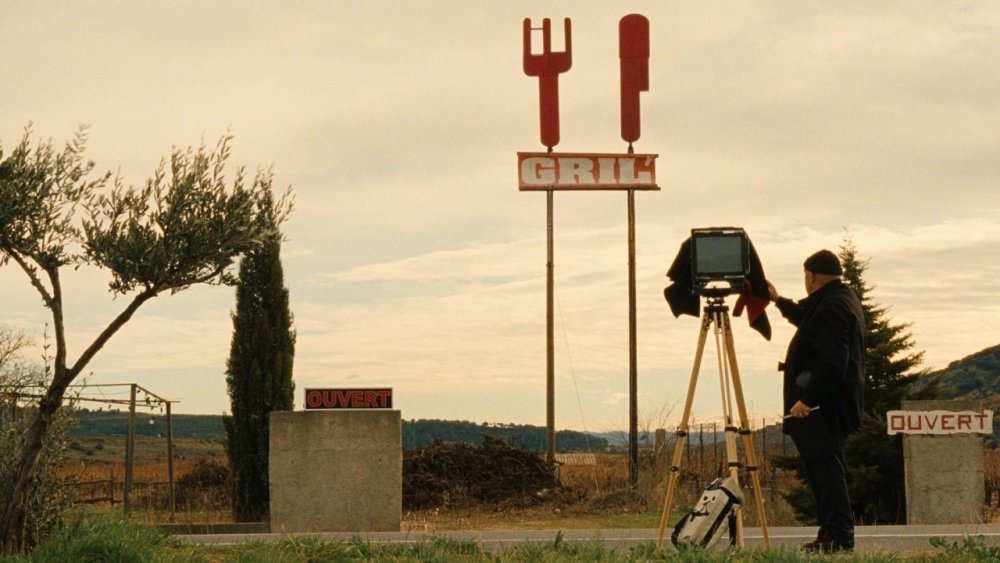
Journal de France (2012)
The title Journal de France is teasingly ambivalent, suggesting at once something like the urgency of a news report and at the same time an intimate diary. But any sense that this documentary about documentary is strictly a portrait – whether public or intimate – of France is belied by a comment from Raymond Depardon: he says it took all his years of travelling abroad to make him want to come back to France and film it. The France seen through Depardon’s eyes is in effect, despite the many documentaries he has made there over the years, something of a foreign country to him.
France 2012
Certificate 12A 100m 6s
Crew
Directors Claudine Nougaret, Raymond Depardon
Producer Claudine Nougaret
Written by Claudine Nougaret, Raymond Depardon
Cinematography Raymond Depardon
Editor Simon Jacquet
Sound Recordists Claudine Nougaret, Guillaume Sciama, Yolande Decarsin, Sophie ChiabautIn Colour and Black and White
[2.35:1]
Subtitles
Distributor Soda Pictures
UK release date 31 January 2014
► Trailer
At once a fond tribute, a career ‘best of’ and a detached rather than intimate study of Depardon by Claudine Nougaret, his partner and sound recordist since the mid 80s, Journal de France nevertheless offers a portrait of France in two senses. First, in the glimpses it provides of certain national institutions, legal, political and otherwise: hence hitherto unseen material from Reporters, Depardon’s 1981 film about the work of press photographers; from films on citizens’ experiences of the French legal system; and from a 1966 documentary on the presidential campaign of then finance minister Valéry Giscard d’Estaing.
It was on the latter film that Depardon says he found his own style of ‘direct cinema’, his ‘looking and listening’ style – but the resulting footage’s revealing insights into the political backstage area resulted in Giscard banning the feature once he entered office. You can see why, given the footage of the future president cynically proposing that the best way to win his campaign might be to make fine speeches but otherwise do nothing.
The other sense in which this film is a portrait of France is that it offers a sense of the international issues and locations that have most preoccupied the nation since the 60s. Depardon’s reportage takes him to Haiti, the West Bank and Prague in 1969, but understandably, given France’s fraught colonial past, Africa is foremost among his destinations. His journeys range from a 1966 trip to the Central African Republic, where we meet Jean-Bédel Bokassa before he became a self-styled and much feared ‘Emperor’, to a visit to Johannesburg in 1993, where (in a sequence that has become all the more moving since his death) a relaxed Nelson Mandela gives the camera one minute of silence – which he himself is able to gauge to the very second, a skill acquired in his years of imprisonment.
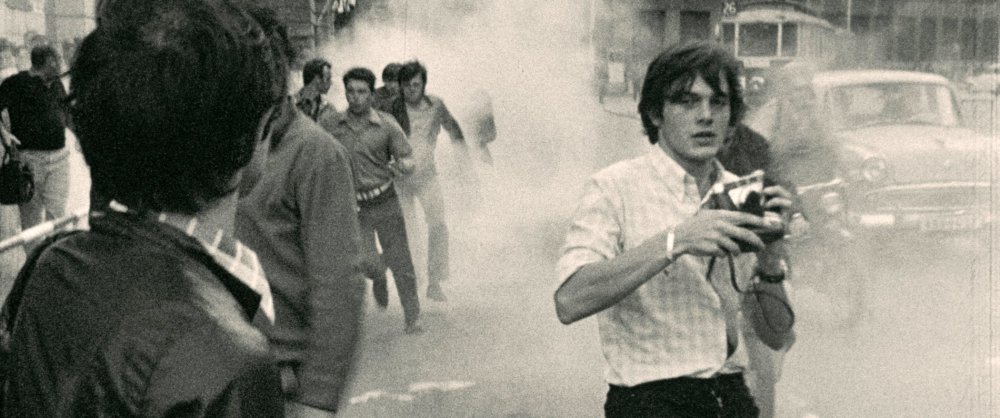
Journal de France (2012)
Africa is also where Depardon finds a particular sense of purpose: he spent two years in Chad documenting the ordeal of archaeologist Françoise Claustre, held hostage by rebels. One of the film’s most remarkable sequences is a poignant, even harrowing interview with the still-captive Claustre, who talks about the monotony of her days (“I try to think about nothing… I’m suffocating”) before letting her desperation and rage emerge nakedly on camera. Ironically, Depardon’s success in getting footage of Claustre shown on French TV, thereby winning support for her plight, resulted in his own imprisonment for failing to help her – an episode worth a documentary in its own right, although only briefly noted here.
Now 71, Depardon has continued to travel widely – an assembly of his recent work includes footage of the US, Russia, China and an unidentified rainforest. But interspersed throughout Journal de France are sequences of Depardon’s recent explorations of his native country and its less spectacular corners. The filmmaker recorded French rural life in his documentary series Profils paysans (2001-08), but the still photography project we see him undertaking here, deliberately using a large unwieldy box camera and plates, seems very much a personal quest, whether for a France he once knew or for an alternative image of the ‘state of the nation’.
The affable, unassuming Depardon is seen driving around looking for mundane locales that spark his interest – village cafés, shops, drab stretches of seaside promenades – which he attempts to photograph without people or cars in sight. He appears to be searching for a disappearing France – he gets a haircut from a barber who is about to lose his shop after 50 years – although there’s no reason to imagine that these nondescript, barely populated corners won’t continue as they are for many years to come, possibly as durable as the pictures Depardon takes of them.
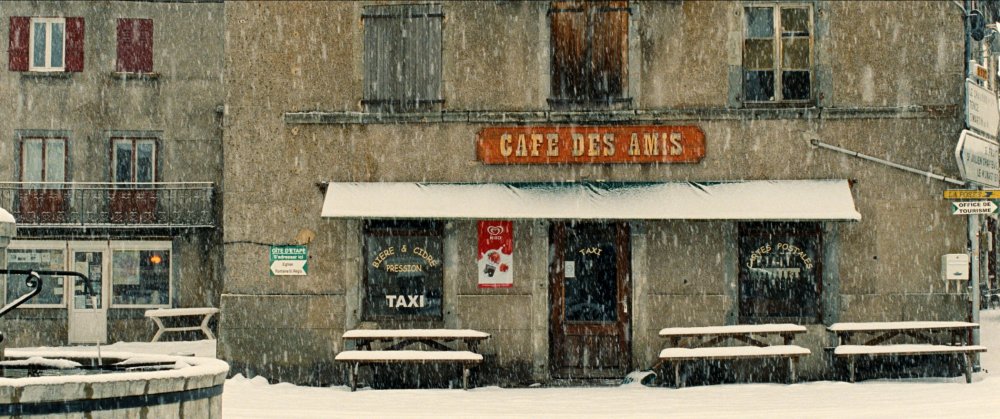
Journal de France (2012)
Despite the intimacy with which Nougaret talks about his career (she is herself filmed by Depardon in the mid-80s), the man behind the camera remains an elusive presence. And it’s no doubt his self-effacing qualities that have enabled him to shoot such revealing footage as the long take of Paris policemen chatting about recent cases, having apparently forgotten Depardon’s presence in their van with them.
A number of famous names are glimpsed or pictured at length: apart from Giscard and Mandela, we see Jacques Chirac, Jean-Luc Godard, Alain Delon and, in a wonderfully jubilant moment, Eric Rohmer letting his hair down with cast and crew on location for The Green Ray, on which Nougaret worked. But this fascinating film really belongs to those people whose names never made the history books, barely even their local newspaper headlines – like the Parisian psychiatric patient making a lengthy and intimate cri de coeur, or an argumentative defendant on a driving violation charge, in every sense making the most of his day in court.
In the February 2014 issue of Sight & Sound
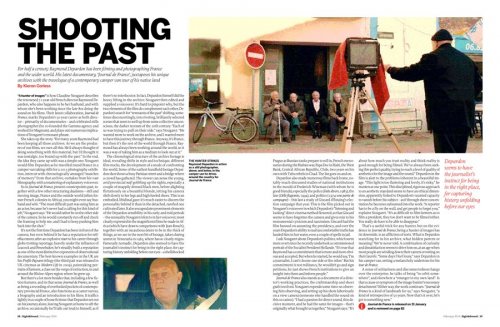
Shooting the past
For half a century Raymond Depardon has been filming and photographing France and the wider world. His latest documentary, Journal de France, juxtaposes his unique archives with the travelogue of a contemporary camper van tour of his native land. Kieron Corless talks to his collaborator and wife, Claudine Nougaret.
-
Sight & Sound: the February 2014 issue
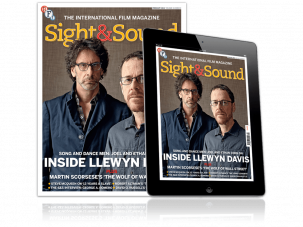
Joel and Ethan Coen on Inside Llewyn Davis, Steve McQueen on 12 Years a Slave, Scorsese’s The Wolf of Wall Street, Altman’s The Long...
-
The Digital Edition and Archive quick link
Log in here to your digital edition and archive subscription, take a look at the packages on offer and buy a subscription.




